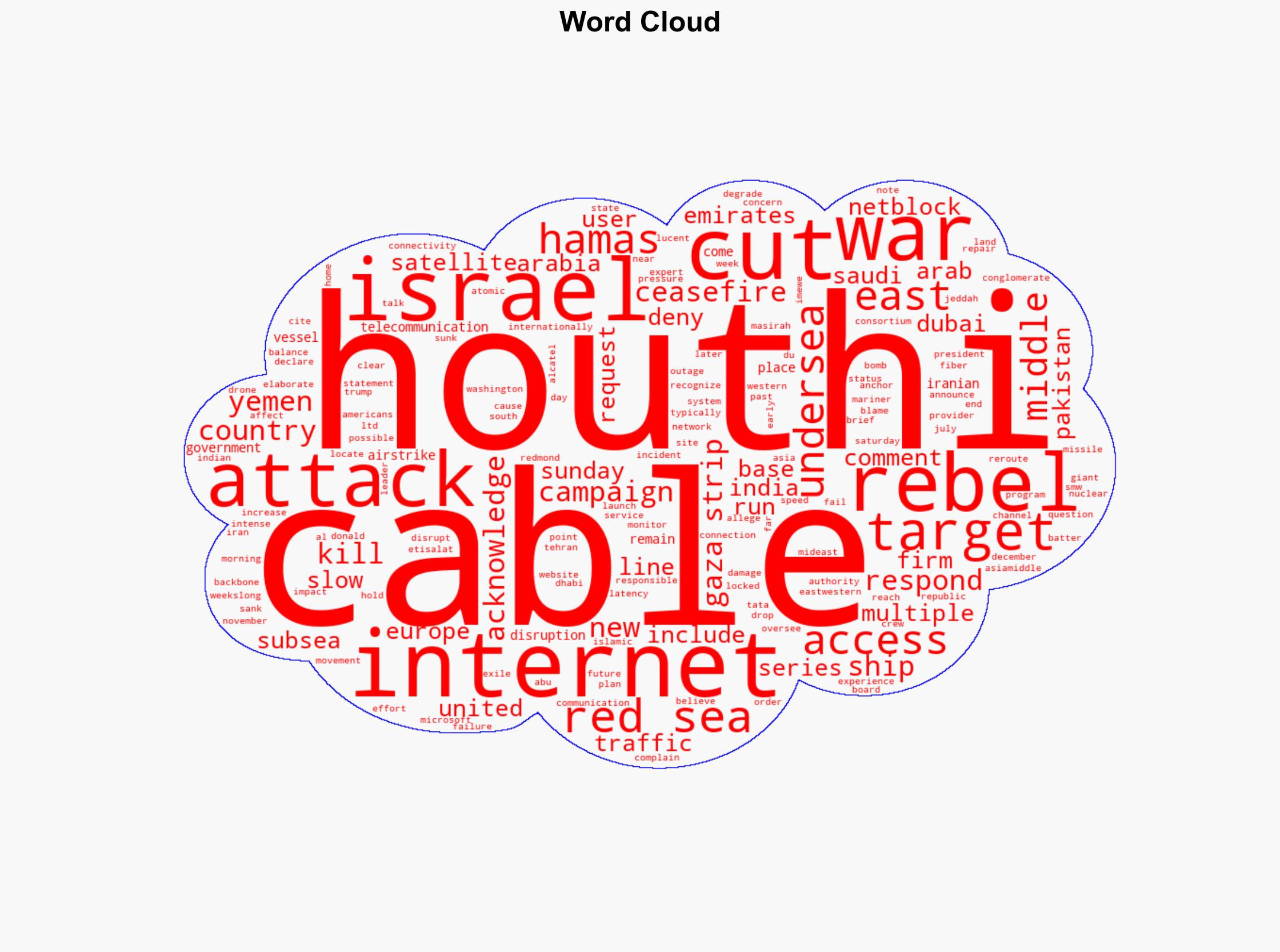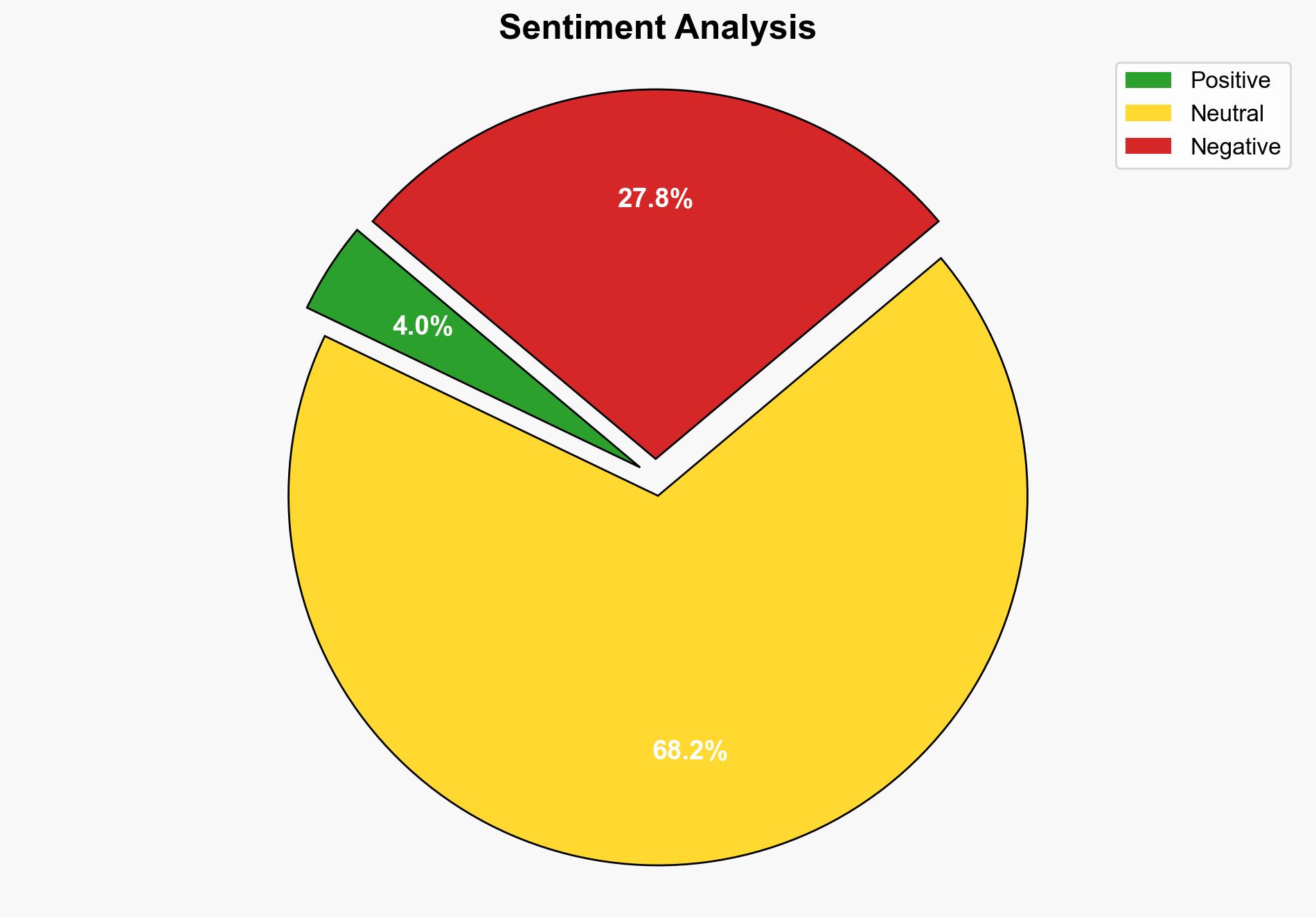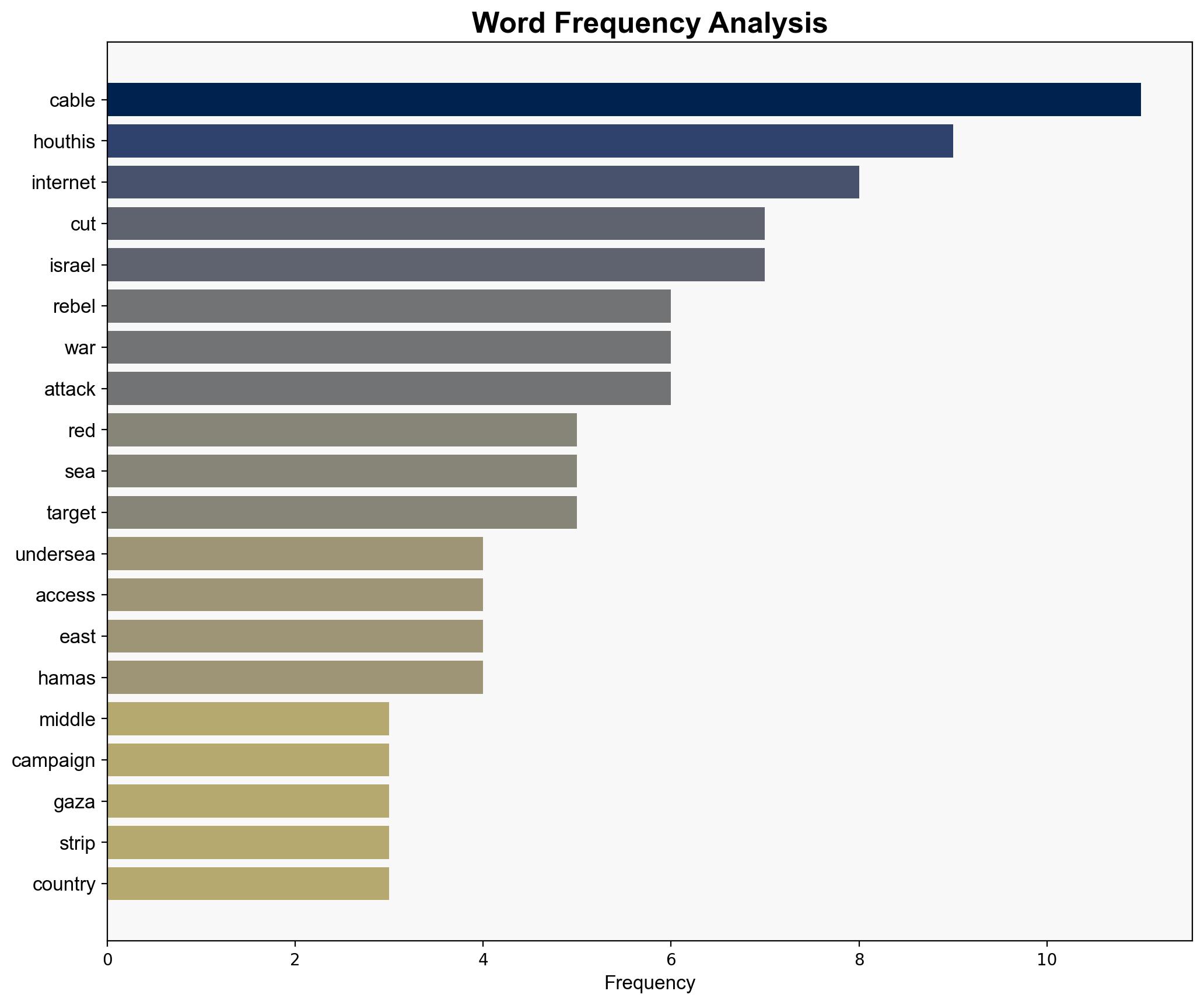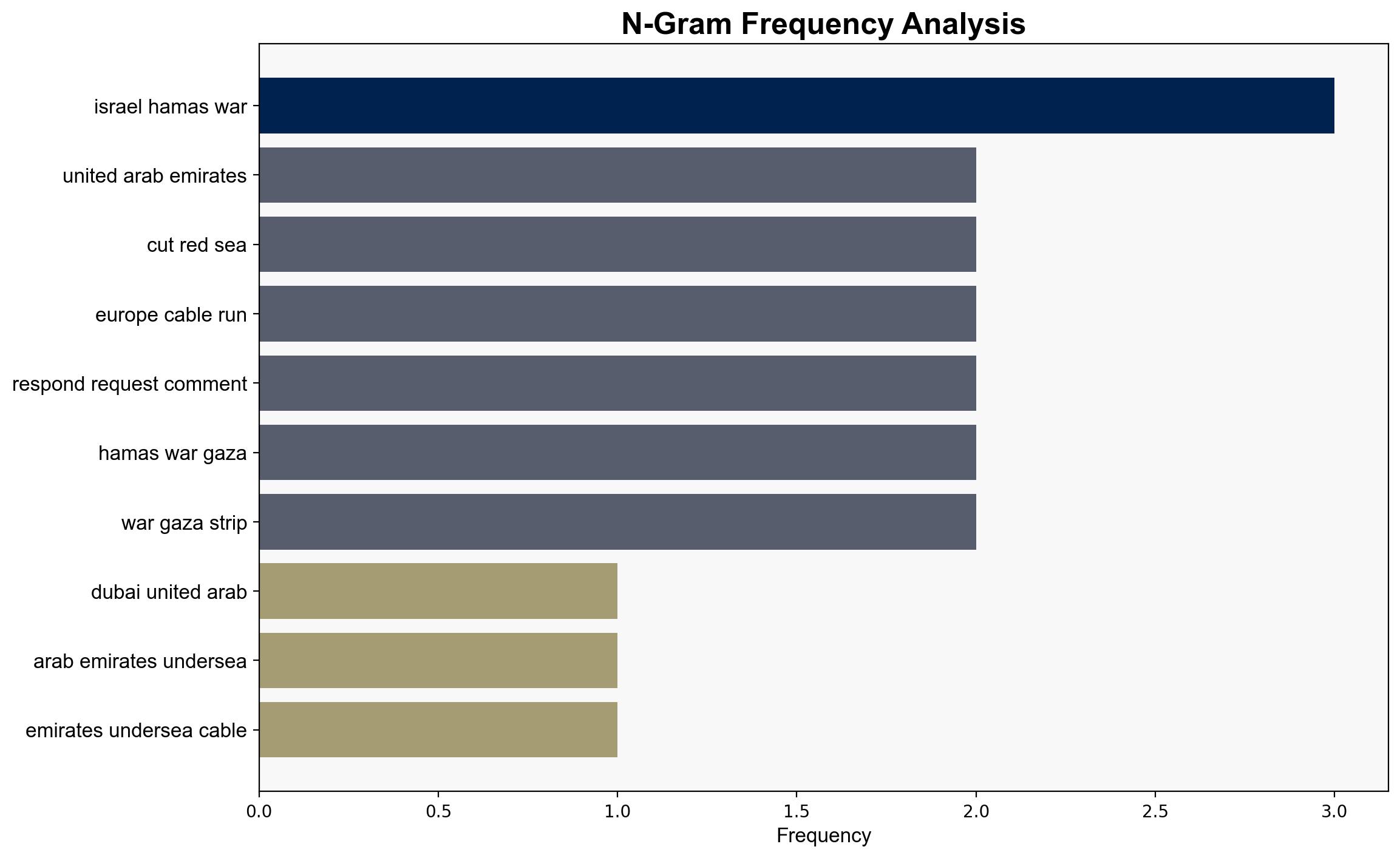Undersea cables cut in the Red Sea disrupting internet access in Asia and the Mideast – NBC News
Published on: 2025-09-07
Intelligence Report: Undersea cables cut in the Red Sea disrupting internet access in Asia and the Mideast – NBC News
1. BLUF (Bottom Line Up Front)
The most supported hypothesis is that the cable cuts were an unintended consequence of maritime activity rather than a targeted attack. Confidence level is moderate due to limited direct evidence. Recommended action includes enhancing maritime monitoring and diplomatic engagement to address potential geopolitical tensions.
2. Competing Hypotheses
Hypothesis 1: The cable cuts were accidental, caused by maritime activities such as anchor drops or ship movements. This is supported by the common occurrence of such incidents and the lack of direct evidence of sabotage.
Hypothesis 2: The cable cuts were a deliberate act by the Houthis or another actor to disrupt communications as part of a broader geopolitical strategy. This is suggested by the timing of the cuts amidst ongoing regional conflicts and previous threats by the Houthis.
3. Key Assumptions and Red Flags
Assumptions:
– Hypothesis 1 assumes that maritime activities are the most likely cause of undersea cable damage.
– Hypothesis 2 assumes that the Houthis or another actor have the capability and intent to target undersea cables.
Red Flags:
– Lack of concrete evidence linking the Houthis directly to the cable cuts.
– Potential bias in attributing the incident to a geopolitical actor without clear evidence.
– Inconsistent reporting on the exact cause and location of the cable cuts.
4. Implications and Strategic Risks
The disruption of undersea cables poses significant risks to regional internet connectivity, impacting economic activities and communications. If the cuts were intentional, it could signal a new front in regional conflicts, potentially escalating tensions and leading to retaliatory actions. Economically, prolonged disruptions could affect trade and financial transactions. Geopolitically, it could strain relations between regional powers and external stakeholders.
5. Recommendations and Outlook
- Enhance maritime surveillance and monitoring to prevent future incidents and identify potential threats.
- Engage in diplomatic dialogues with regional actors to de-escalate tensions and promote cooperative security measures.
- Scenario Projections:
- Best Case: Improved maritime security prevents further incidents, and diplomatic efforts reduce regional tensions.
- Worst Case: Continued cable disruptions lead to significant economic losses and escalate regional conflicts.
- Most Likely: Increased monitoring and diplomatic engagement stabilize the situation, but underlying tensions persist.
6. Key Individuals and Entities
– Houthis (Yemen-based group)
– Alcatel-Lucent (Cable system overseer)
– Tata Communications (Cable system operator)
7. Thematic Tags
national security threats, cybersecurity, counter-terrorism, regional focus





